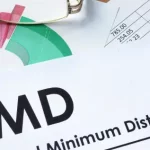What to Do When You Inherit a 401(k)
If you’ve recently inherited someone else’s 401(k) or other retirement plan, you may be wondering what your next steps should be.
Do you have to take withdrawals or could you just leave the money where it is? Are you allowed to rollover the funds into your own IRA? And do you have to pay taxes on a 401(k) inheritance?
We get it, 401(k) beneficiary rules and laws can get confusing. That’s why we’re here to help.
In most cases, the funds in a 401(k) grow on a tax-deferred basis, which means taxes will be owed when the money is withdrawn. If you inherit someone else’s 401(k) account, you will be responsible for taxes on funds withdrawn in the future. Your withdrawal strategy, including how much you take out and when, will influence how much you owe.1
There are also regulations affecting the options available to you, depending upon your relationship to the original account holder. The beneficiary is almost always the account holder’s spouse, unless the spouse signs a waiver granting permission to leave the 401(k) to someone else. Typical non-spousal beneficiaries include children, siblings, other relatives or trusted friends. An unmarried account holder may designate any beneficiary they wish.2
In December 2019, Congress passed the SECURE Act. It requires most non-spousal beneficiaries to withdraw all funds within 10 years if the original account owner dies after January 1, 2020. Another important factor is whether the deceased had reached the required age for taking required minimum distributions (RMDs), which is 70 ½ before January 1, 2020 or 72 after that date.
Non-Spousal Beneficiaries
As noted above, most non-spousal beneficiaries must fully distribute all assets from an inherited 401(k) within 10 years of the original account holder’s death.
You’ll need to evaluate your likely tax burden when deciding on your withdrawal strategy. Leaving the money in place until the tenth year allows it to grow tax-free. However, withdrawing everything at once will put you into a higher tax bracket for that year, which increases your liability. Taking smaller annual withdrawals may help to minimize your taxes. Failure to empty the account within 10 years could result in a 50% penalty.3
SECURE Act Exceptions
There are three exceptions to the 10-year rule under the SECURE Act:
- Minor children of the deceased
- Beneficiaries less than 10 years younger than the deceased
- Beneficiaries with a qualifying disability or chronic health condition
When a minor child inherits a parent’s 401(k), the child must take annual RMDs based on life expectancy, until age 18. Once the child turns 18, they must then empty the remaining funds within 10 years.
Beneficiaries who are less than 10 years younger than the deceased, and those with qualifying disabilities, may take annual RMDs based on their own life expectancies instead of within 10 years.
What if a Trust Is Named as the Beneficiary?
Some account holders choose to leave their 401(k) to a trust on behalf of minor children or individuals with special needs. If a trust account is the primary beneficiary, the trust account’s beneficiaries must reassess for tax implications.
One potential concern is that plan assets are still subject to annual RMD requirements. When a trust is the beneficiary, the required distributions will be based on the life expectancy of the oldest beneficiary. This is typically not a problem if there is only one beneficiary, such as an only child. If there are multiple siblings, however, this could make it more challenging to plan a withdrawal strategy that meets each individual’s needs.4
Leaving a 401(k) to a trust has its benefits if you have minor children or a very specific distribution plan, but the beneficiary may pay lower taxes and have more investment options if the 401(k) was left to them outside of a trust. If you have questions about Trust planning, please join us at our next estate planning meeting. Click here to RSVP.
Spousal Beneficiaries
401(k) spousal beneficiary rules can be tricky and the best course of action when inheriting a 401(k) from your spouse will depend on your age and whether your spouse had begun taking annual RMDs. Your three main options include (1) leaving the money in their plan and taking distributions, (2) transferring funds to an inherited IRA or (3) transferring the funds to your own existing IRA.
Option 1: Leave the Money in Their Account & Take Distributions
At some point, you will be required to take annual RMDs if you choose to leave the money in your spouse’s existing 401(k). When you start taking them depends on your current age and your spouse’s age at the time of their death.
If your spouse turned 70 ½ before January 1, 2020, or turned 72 after that date, they would have begun taking annual RMDs. If that is the case, and if you leave the money in their account, you will be required to continue taking them.
If your spouse was younger than the required RMD age and you are between 59 ½ and 72, you will begin taking RMDs when they would have turned 72. If you are younger than 59 ½, you have the option to make withdrawals without paying the 10% penalty, but you will still owe regular income tax.5
Option 2: Transfer Funds to an Inherited IRA
An inherited IRA is an account specifically designed to hold assets inherited from a 401(k), IRA or similar retirement plan. An inherited IRA has the same tax status as other types of IRAs, depending on whether it is funded with pre-tax or after-tax dollars.6
If you roll over your spouse’s 401(k) into an inherited IRA, you have two options when it comes to taking withdrawals.
- Your first option, also called the “stretch” option, lets you take annual distributions over the course of your own life expectancy.
- Your second option is to withdraw all funds within five years of your spouse’s death.6
Option 3: Transfer Funds to an Existing IRA
Finally, you may roll over your spouse’s 401(k) into an existing IRA of your own.
If you and your spouse were either 72 or older at the time of their death, you will be required to take annual RMDs. However, if you roll over their account into your own IRA, you may calculate those distributions based on your own life expectancy.
If you are between 59 ½ and 72, you may wait to begin annual withdrawals until after you turn 72. You will owe a 10% penalty if you withdraw funds before age 59 ½, in addition to regular income tax.5
Exploring Your Options for an Inherited 401(k)
If you’ve recently inherited a 401(k) from a parent, spouse or other loved one, you may be unsure what the best course of action would be. You may have additional questions about whether to roll over the funds into a new account, when to begin withdrawals and what your investment options are.
At The Resource Center, our local financial planners are here to guide your decision-making. We encourage you to reach out to us and schedule an appointment to review your options. We look forward to helping you plan a financial future you can feel good about.
Source:
1: https://www.fool.com/retirement/plans/401k/inherited/
2: https://smartasset.com/retirement/inherited-401k
3: https://www.cnbc.com/2021/04/11/how-to-handle-complicated-rules-for-inherited-401k-or-ira.html
4: https://www.investopedia.com/ask/answers/09/trust-beneficiaries.asp
5: https://www.thebalance.com/inherited-401k-distribution-and-withdrawal-rules-2388269
6: https://www.bankrate.com/retirement/inherited-ira-rules/
The Resource Center, Inc. is an independent financial services firm that utilizes a variety of investment and insurance products. Investment advisory services offered only by duly registered individuals through AE Wealth Management, LLC (AEWM). AEWM and The Resource Center, Inc. are not affiliated companies. The information and opinions contained in any of the material requested from this website are provided by third parties and have been obtained from sources believed to be reliable, but accuracy and completeness cannot be guaranteed. They are given for informational purposes only and are not a solicitation to buy or sell any of the products mentioned. The information is not intended to be used as the sole basis for financial decisions, nor should it be construed as advice designed to meet the particular needs of an individual’s situation. Neither the firm nor its agents or representatives may give tax or legal advice. Individuals should consult with a qualified professional for guidance before making any purchasing decisions. Our agency is not affiliated with the U.S. government or any governmental agency. 944059 – 6/21






